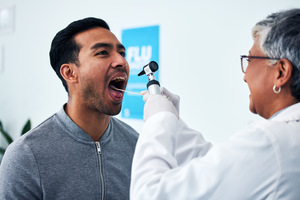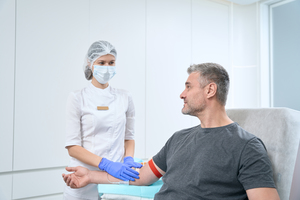Find Hepatitis test
in Buffalo Grove, IL.
Own a clinic? Add your location.
Help patients book appointments with you on Solv. It's free!
20 instant-book locations

Vitality Urgent Care
Vitality Urgent Care
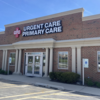
AFC Urgent Care, Libertyville
AFC Urgent Care

NewMed Immediate Care, Rolling Meadows
NewMed Immediate Care

Midwest Express Clinic, Northbrook- IL
Midwest Express Clinic

NewMed Immediate Care, Mount Prospect
NewMed Immediate Care

NewMed Immediate Care, Hoffman Estates
NewMed Immediate Care

Schaumburg Immediate Care
Schaumburg Immediate Care

Midwest Express Clinic, Skokie- IL
Midwest Express Clinic

Midwest Express Clinic, Norridge IL
Midwest Express Clinic
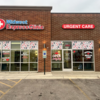
Midwest Express Clinic, Rogers Park- IL
Midwest Express Clinic

Midwest Express Clinic, Mayfair- IL
Midwest Express Clinic

Family Urgent Care, West Rogers Park - Chicago
Family Urgent Care
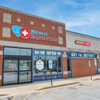
Midwest Express Clinic, Elmhurst on York Street- IL
Midwest Express Clinic

North Ave Immediate Care, Addison
North Ave Immediate Care

Midwest Express Clinic, Portage Park- IL
Midwest Express Clinic

Midwest Express Clinic, Melrose Park- IL
Midwest Express Clinic

Midwest Express Clinic, Belmont Cragin
Midwest Express Clinic

Midwest Express Clinic, Carol Stream- IL
Midwest Express Clinic

Midwest Express Clinic, Elmhurst on Butterfield- IL
Midwest Express Clinic

Family Urgent Care, Logan Square - Chicago
Family Urgent Care
Own a clinic? Add your location.
Help patients book appointments with you on Solv. It's free!
About Hepatitis test
Who should get tested for hepatitis?
Anyone who has been exposed to blood or body fluids of an infected person should get tested for hepatitis. This includes those who have shared needles or other drug paraphernalia, had unprotected sex, or received a blood transfusion or organ transplant before 1992. Additionally, individuals born between 1945 and 1965, healthcare workers, and those with liver disease or HIV should also consider getting tested according to the CDC.
Importance of getting tested
Getting tested for hepatitis is crucial as it can lead to serious health complications if left untreated, including liver damage, liver cancer, and even death. Early detection allows for prompt treatment, which can prevent these severe outcomes and limit the spread of the disease to others.
Hepatitis testing options in Buffalo Grove, IL:
Urgent care and walk-in clinics
Urgent care and walk-in clinics offer a convenient option for hepatitis testing. Midwest Express Clinic in Northbrook and Rapid Immediate Care in Hoffman Estates are two nearby options with high ratings and short wait times. Both clinics offer same-day and next-day testing appointments, which can be booked through Solv’s website and mobile app.
Primary care providers
Primary care providers are another option for hepatitis testing. These professionals can provide ongoing care and treatment if you test positive for the disease.
Free STD testing and community health centers
Free STD testing and community health centers offer affordable options for hepatitis testing. These centers are often funded by the state or federal government and can provide testing and treatment services to those who may not have insurance or the means to pay.
At-home testing
At-home testing kits are also available for those who prefer the privacy and convenience of testing at home. These kits can be ordered online, used at home, and then sent back to a lab for analysis.
Prevalence of hepatitis in Buffalo Grove
According to the CDC, the prevalence of hepatitis in Buffalo Grove is lower than the national average but higher than some nearby counties like Williams County and Defiance County. However, it is important to note that these numbers can change rapidly and it is always advisable to get tested if you are at risk.
Risk factors related to hepatitis in Buffalo Grove
Risk factors for hepatitis in Buffalo Grove are similar to those in other parts of the country. These include drug use, unprotected sex, and exposure to infected blood or body fluids.
Other STDs in Buffalo Grove
In addition to hepatitis, other STDs such as gonorrhea, chlamydia, HIV, and syphilis are also prevalent in Buffalo Grove. The rates of these diseases are similar to those seen in nearby cities like Long Grove, Wheeling, and Lincolnshire. As with hepatitis, testing and early detection are key to preventing the spread of these diseases.
Solv has strict sourcing guidelines and relies on peer-reviewed studies, academic research institutions, and medical associations. We avoid using tertiary references.
Related Searches
DOT Exam in Buffalo Grove, IL
A1C Test in Buffalo Grove, IL
Urgent Care in Buffalo Grove, IL
Blood Test in Buffalo Grove, IL
COVID-19 Pill in Buffalo Grove, IL
Diabetes Test in Buffalo Grove, IL
Vitamin D Test in Buffalo Grove, IL
Ear Wax Removal in Buffalo Grove, IL
Basic Metabolic Panel in Buffalo Grove, IL
Strep Test in Buffalo Grove, IL
Sports Physicals in Buffalo Grove, IL
STD Testing in Buffalo Grove, IL
Dermatologists in Buffalo Grove, IL
COVID-19 Testing in Buffalo Grove, IL
Drug Test in Buffalo Grove, IL
Allergy Testing in Buffalo Grove, IL
TB Test in Buffalo Grove, IL
Pediatric Urgent Care in Buffalo Grove, IL
DNA Test in Buffalo Grove, IL
Retail Clinic in Buffalo Grove, IL
Pulmonary Function Test in Buffalo Grove, IL
Thyroid Test in Buffalo Grove, IL
Pregnancy Test in Buffalo Grove, IL
Lab Tests in Buffalo Grove, IL
Glucose Test in Buffalo Grove, IL
Cholesterol Test in Buffalo Grove, IL
Urinalysis in Buffalo Grove, IL
CMP Test in Buffalo Grove, IL
H Pylori Test in Buffalo Grove, IL
RSV Test in Buffalo Grove, IL
Mono Test in Buffalo Grove, IL
Flu Test in Buffalo Grove, IL
Diagnostic Test in Buffalo Grove, IL
Aetna Urgent Care
Blue Cross Blue Shield Urgent Care
Cigna Urgent Care
COVID-19
Flu
United Health Urgent Care
» All services in Buffalo Grove, ILFind hepatitis test
Nearby cities
Popular Brands in Buffalo Grove
Everyday Healthcare, Simplified
Expert advice to help you live your best life
